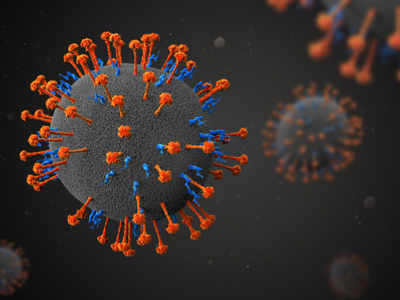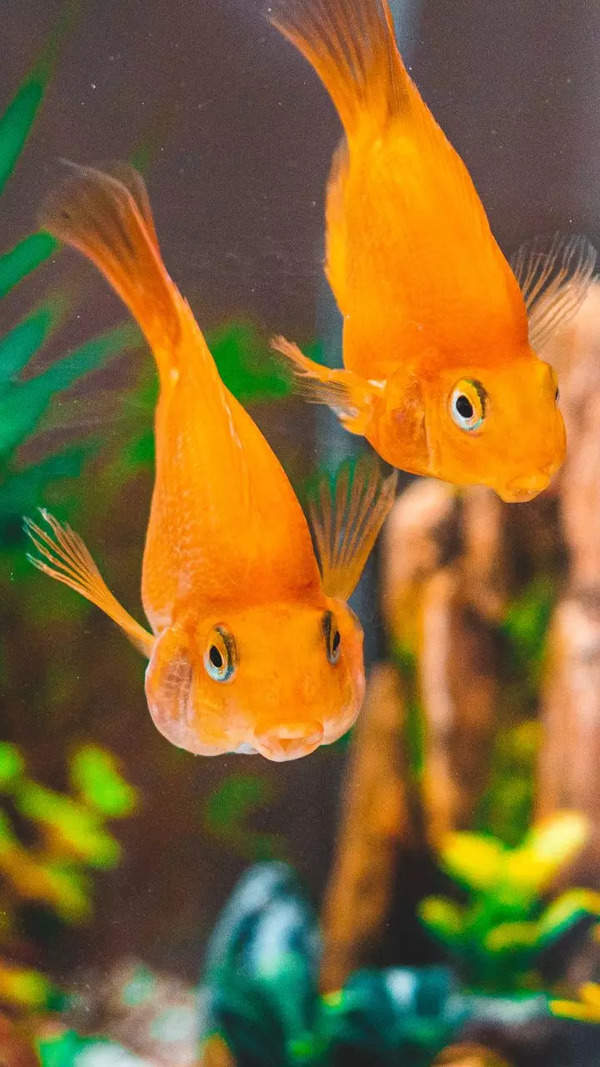- News
- lifestyle
- health-fitness
- health-news
- Nipah virus case confirmed in Kerala! Here is what you need to know
Trending
This story is from June 3, 2019
Nipah virus case confirmed in Kerala! Here is what you need to know
The fatal Nipah virus that jolted Kerala about a year ago, seems to have resurfaced in the state once again.

The fatal Nipah virus that jolted Kerala about a year ago, seems to have resurfaced in the state once again. Kerala Health Minister KK Shylaja has confirmed one case of Nipah virus infection. A 23-year-old has been diagnosed of being infected with the virus in Kerala's Ernakulam. The confirmation has come in from the National Institute of Virology (NIV) in Pune.The deadly virus claimed 17 lives last year.
How Nipah virus gets spread
The Nipah infection usually spreads from animal to animal, but in some rare cases, it also spreads from animal to humans. Pigs and bats are usually the animals found to be responsible for the spread of this infection in humans.
According to the World Health Organisation, the fatality rate is estimated at 40 – 75 per cent. This rate can vary, depending on local capabilities for epidemiological surveillance and clinical management.
The virus can spread through fruits bitten by bats that carry the virus or by the animal’s excreta finding its way into human food. If the right precautions are not taken, the infection can spread from close contact with an infected person. In case of an infection caused by the Nipah virus, it takes 14 days to manifest the symptoms. The most common symptoms are fever, headache, losing consciousness and giddiness.
Symptoms of Nipah infection
The Nipah Infection in human presents as an encephalitic syndrome marked by fever, giddiness, drowsiness, coma, mental confusion, disorientation, headache and potentially death. During the first outbreak in Malaysia, nearly 50 per cent of people detected with the virus, died. There is no particular treatment for the Nipah virus. The primary care given to the people detected with it is intensive supportive care.
Nipah virus prevention
There is yet no vaccine available for the infection, only taking preventive measures is vital to control the spread. Fruit bats being the primary cause of the infection, the farm animals should be prevented from eating the fruits contaminated by bats. Avoid the consumption of date palm sap. Physical barriers should be placed in order to prevent bats from accessing and contaminating the palm sap.
People suspected to carry the virus should not forget to wash hand, use a gown, cap masks and wear gloves.
Preventing infection in animals
Wire screens can be placed to help prevent contact with bats when pigs are raised in open-sided pig sheds. Early recognition of infected pigs can help protect other animals and human beings.
Cure of the Nipah Virus
The first treatment given to the patients detected with the virus is limited to Intensive Care Support for neurological and respiratory complications. Symptoms are treated individually as no vaccine has been developed. For example, someone who has breathing issues can be put on artificial ventilators.
The government of Kerala is also supplying Ribavirin, which has anti-viral properties.
How Nipah virus gets spread
The Nipah infection usually spreads from animal to animal, but in some rare cases, it also spreads from animal to humans. Pigs and bats are usually the animals found to be responsible for the spread of this infection in humans.
According to the World Health Organisation, the fatality rate is estimated at 40 – 75 per cent. This rate can vary, depending on local capabilities for epidemiological surveillance and clinical management.
How it spreads
The virus can spread through fruits bitten by bats that carry the virus or by the animal’s excreta finding its way into human food. If the right precautions are not taken, the infection can spread from close contact with an infected person. In case of an infection caused by the Nipah virus, it takes 14 days to manifest the symptoms. The most common symptoms are fever, headache, losing consciousness and giddiness.
Symptoms of Nipah infection
The Nipah Infection in human presents as an encephalitic syndrome marked by fever, giddiness, drowsiness, coma, mental confusion, disorientation, headache and potentially death. During the first outbreak in Malaysia, nearly 50 per cent of people detected with the virus, died. There is no particular treatment for the Nipah virus. The primary care given to the people detected with it is intensive supportive care.
Nipah virus prevention
There is yet no vaccine available for the infection, only taking preventive measures is vital to control the spread. Fruit bats being the primary cause of the infection, the farm animals should be prevented from eating the fruits contaminated by bats. Avoid the consumption of date palm sap. Physical barriers should be placed in order to prevent bats from accessing and contaminating the palm sap.
People suspected to carry the virus should not forget to wash hand, use a gown, cap masks and wear gloves.
Preventing infection in animals
Wire screens can be placed to help prevent contact with bats when pigs are raised in open-sided pig sheds. Early recognition of infected pigs can help protect other animals and human beings.
Cure of the Nipah Virus
The first treatment given to the patients detected with the virus is limited to Intensive Care Support for neurological and respiratory complications. Symptoms are treated individually as no vaccine has been developed. For example, someone who has breathing issues can be put on artificial ventilators.
The government of Kerala is also supplying Ribavirin, which has anti-viral properties.
End of Article
FOLLOW US ON SOCIAL MEDIA









